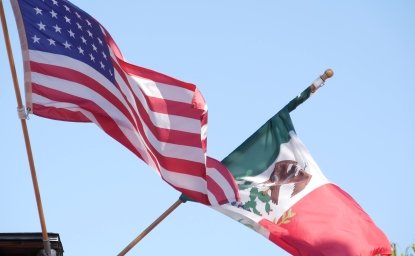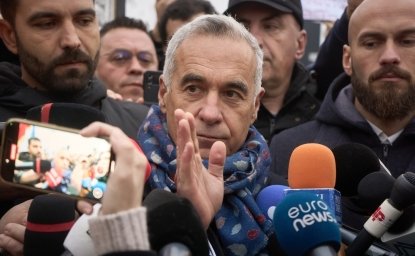Nigeria is scheduled to hold national elections on March 28 and state elections on April 11. The elections have occasioned intense competition and equally intense uncertainty. Originally scheduled for February 14 and 28, the vote was postponed due to security forces’ concerns about the northeast, where the violent group Boko Haram (“Western education is forbidden by Islam”) primarily operates. Some Nigerians expect another postponement, an outright cancellation of the elections, or the firing of Independent National Electoral Commission Chairman Attahiru Jega, who resisted the security forces’ call for a delay. Nigerian authorities face domestic and international pressure not to move the calendar again, but further changes are possible.
Even after the elections, Nigeria will still face deep-rooted problems, including corruption, unemployment, and insecurity. It matters who wins – but only to an extent. Long-term change will depend on whether the political, business, and military elite can commit to more responsive governance and more equitable allocation of resources, and whether voters and citizens can hold elites accountable.
Core Problems
Corruption, unemployment, and insecurity are interrelated. Many Nigerians identify corruption as their country’s core problem. Much corruption involves oil. Nigeria is Africa’s largest producer, generating about two million barrels per day, but much oil and oil wealth is stolen. Recent scandals include a former Central Bank governor’s 2013 allegation that the Nigerian National Petroleum Corporation could not account for nearly $50 billion. This case and others have been clouded by counter-accusations, investigations, and conspiracy theories, but most accounts agree that Nigeria loses billions to corruption each year.
Corruption is not limited to oil. The National Police Force has been accused of systemically harassing drivers and detainees. Many Nigerians experience corruption not just as the theft of public monies but also as predation by authority figures with whom they interact directly.
Corruption helps drive inequality. Over 60% of Nigerians live on less than $1 a day, despite Nigeria having Africa’s largest gross domestic product (nearly $510 billion). Unemployment figures are disputed, but a 2013 estimate puts unemployment at 22% and youth unemployment at 38%. As some Nigerians enrich themselves, and as a middle class grows in parts of the country, millions of Nigerians still have no livelihood.
Many commentators have made a misleading equation between corruption, poverty, and Boko Haram, as though economic desperation and regional disparities inevitably create violent groups. Boko Haram is the product of numerous factors, of which poverty is only one. Causes aside, however, corruption has unquestionably hampered the fight against Boko Haram. Security forces’ predations weaken civilians’ trust in government. Corruption within the security forces prevents pay and supplies from reaching the front lines. Witness the complaints of soldiers who fired on their commander’s car in May 2014: they blamed senior officers for under-equipping their comrades who had just been fatally ambushed by Boko Haram. All of these problems will confront Nigeria’s next president.
Core Issues and the Presidential Campaign
In the presidential race, incumbent President Goodluck Jonathan, who took office in 2010, faces former military ruler General Muhammadu Buhari, the runner-up in Nigeria’s last three presidential elections. Much international coverage has portrayed their rivalry in regional terms – Jonathan hails from the south, Buhari from the north, and Jonathan’s tenure disrupts an agreement within the ruling party to rotate power between the south and the north. International media coverage has also connected Buhari’s widening popularity to Jonathan’s seeming inability to defeat Boko Haram.
To read the full version of this article please visit our blog, Africa Up Close.
Alex Thurston is a visiting Assistant Professor at the School of Foreign Service, Georgetown University






